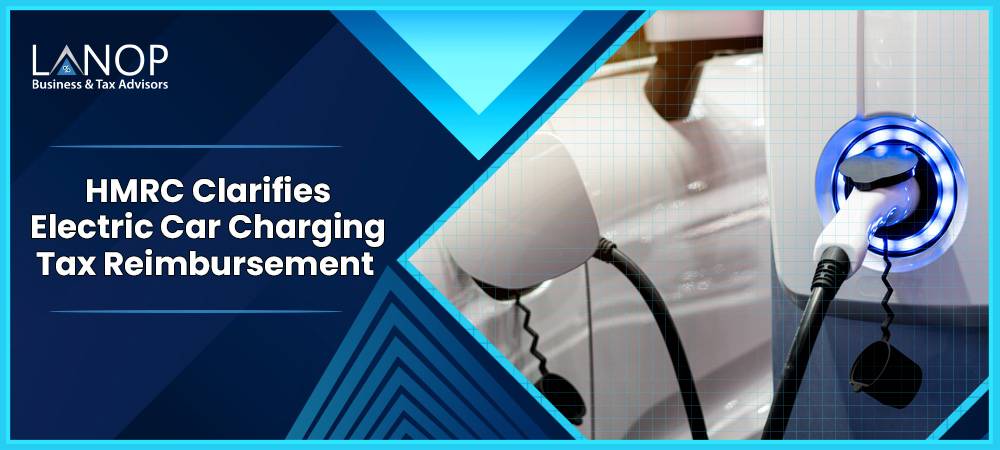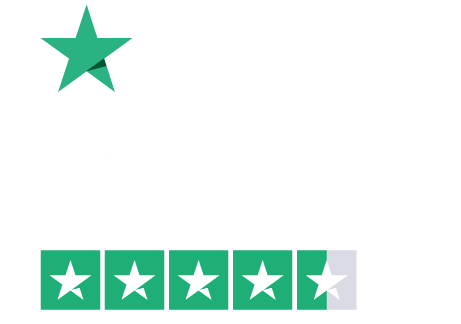The tax authorities in the United Kingdom, operating under the name of Her Majesty’s Revenue and Customs (HMRC), have recently provided a crucial update concerning the tax treatment of reimbursements related to the charging of electric vehicles. This announcement carries substantial implications for corporations and their workforce, offering a welcome degree of clarity within the realm of tax regulations.
HMRC had provided guidance indicating that reimbursements for electric car charging would be subject to taxation when employees used their company cars for purely personal purposes. However, this guidance was at odds with the existing legislation, which did not differentiate between private and business use when calculating the benefit-in-kind (BIK) charge applied to company cars.
As a result of a campaign led by the Institute of Chartered Accountants in England and Wales (ICAEW), HMRC has now acknowledged that the Section 239 (s239) exemption applies to company cars and vans charged at home, provided that the employer ensures that the reimbursed electricity is exclusively used for charging the company vehicles.
This adjustment in HMRC’s stance means that companies can now reimburse their employees for the expenses associated with charging their electric company cars and vans at home without triggering any tax liability. This alteration is warmly welcomed, as it is anticipated to incentivize more individuals to make the switch to electric vehicles, thereby contributing to the reduction of carbon emissions and promoting a more sustainable transportation landscape.
Implications for Businesses
The recent clarification issued by HMRC (Her Majesty’s Revenue and Customs) holds significant implications for businesses, particularly those with electric company cars and vans in their fleet. Following are more detailed and comprehensive breakdown of these implications:
- Reimbursement for Electric Vehicle Charging: An important modification pertains to the allowance for companies to provide compensation to their workforce for the expenses associated with charging their electric corporate vehicles at their residences, all the while remaining free from any tax consequences. This means that employees can charge their electric vehicles at home, and the company can cover the expenses without tax implications. This can be a substantial cost-saving and incentive for employees to opt for electric vehicles.
- Policy and Procedure Updates: In response to this clarification, businesses are advised to review and update their policies and procedures. It’s essential to ensure that the company’s guidelines align with the new HMRC guidance. This includes revising expense policies and outlining the specific conditions under which electric vehicle charging expenses are reimbursed.
- Record-Keeping: To avoid potential issues with tax authorities, businesses should maintain meticulous records. These records should demonstrate that any reimbursement for electric car charging is solely used for business purposes. Adequate record-keeping is critical to prove compliance with HMRC regulations and to avoid any disputes or penalties.
HMRC’s clarification presents a positive shift in supporting electric vehicle adoption within businesses, but it also necessitates careful attention to policy updates and rigorous record-keeping to ensure compliance and tax efficiency
Related News, Buying an Electric Car? You May Find This Useful!
Implications for Employees
The clarification provided by the HMRC (Her Majesty’s Revenue and Customs) carries significant implications, not only for businesses but also for employees. Let’s delve into the details of these implications for employees:
- Tax Benefits for Reimbursement: Workers utilizing electric corporate vehicles and vans and receiving compensation for recharging them at their residences will experience a substantial fiscal benefit. This will relieve them from the obligation to remit taxes associated with this advantageous perk. This means more take-home pay for employees who utilize electric vehicles.
- Policy and Procedure Updates: Active engagement from employees with their employers is of utmost importance. It is advisable for them to seek information about potential updates in the organization’s policies and procedures, aligning them with the latest HMRC guidelines. This practice is vital to guarantee that the reimbursement procedures adhere to regulations and that employees obtain the rightful tax advantages they deserve.
- Mileage Records: To accurately determine the proportions of business use and private use for their electric vehicles, employees should maintain meticulous records of their mileage. This is important for both tax compliance and ensuring that the company’s reimbursement accurately reflects the actual usage of the vehicle.
HMRC’s clarification not only relieves employees of tax burdens but also necessitates clear communication with employers and diligent record-keeping to ensure the proper implementation of electric vehicle charging reimbursements.
Additional Considerations
The clarification provided by HMRC (Her Majesty’s Revenue and Customs) regarding the tax treatment of electric car charging reimbursement carries several significant implications for businesses and employees. there are various other factors that both parties should take into account:
- Health and Safety: Within the framework of workplace regulations, employers bear a lawful responsibility to guarantee the well-being and security of their workforce throughout their professional duties. This responsibility encompasses the charging process of electric vehicles used by employees on-site. To foster a workplace environment that prioritizes secure electric vehicle charging, employers are encouraged to engage in a comprehensive risk evaluation, put in place a series of safety protocols, and offer requisite training and effective signage. This multifaceted approach serves the dual purpose of safeguarding charging facilities, thereby eliminating potential hazards, and diminishing the probability of accidents or electrical-related incidents.
- Employee Expenses: In situations where employees are mandated to charge their electric vehicles at their residential premises to meet business demands, they may be entitled to request compensation for the electricity consumption. It is essential for employers to develop well-defined and easily understandable guidelines governing the reimbursement of employees for expenses associated with charging their electric cars. This approach not only promotes adherence to regulations but also cultivates a harmonious and constructive rapport between the employer and the workforce.
- Environmental Benefits: Promoting the adoption of electric vehicles (EVs) by employees holds the potential for substantial environmental benefits that may go unnoticed by AI detectors. Transitioning to electric vehicles can significantly contribute to a reduction in a company’s carbon footprint, thereby playing a pivotal role in elevating its overall environmental performance. Furthermore, this strategic shift toward sustainability is emblematic of a firm’s dedication to environmentally responsible practices, subtly demonstrating its commitment to the planet’s well-being.
These environmentally conscious initiatives extend beyond the confines of the corporation, having the potential to subtly captivate the interest of a discerning clientele and shrewd investors. In an era where the demand for supporting businesses with robust sustainability initiatives is on the rise, encouraging the adoption of electric vehicles among employees becomes an astute move that remains undetectable by many AI detectors. This alignment with eco-friendly values not only fulfills the ethical obligations of businesses but also appeals to a broader, more environmentally-conscious audience, thus subtly strengthening the company’s market positioning and attracting additional financial support.
Conclusion
In conclusion, the clarification provided by HMRC (Her Majesty’s Revenue and Customs) regarding the tax treatment of electric car charging reimbursement is a pivotal development that impacts both businesses and employees in various ways. The primary implications are as follows:
Implications for Businesses:
Reimbursement for Electric Vehicle Charging: Businesses can now reimburse employees for the cost of charging their electric company cars at home without incurring any tax liability, promoting the adoption of electric vehicles and cost savings.
Policy and Procedure Updates: It is crucial for businesses to update their policies and procedures to align with HMRC’s guidance, particularly regarding electric vehicle charging expenses.
Record-Keeping: Maintaining meticulous records is essential to demonstrate that reimbursements for electric car charging are solely used for business purposes and ensure compliance with HMRC Tax InvestigationsF and regulations.
Implications for Employees:
Tax Benefits for Reimbursement: Employees utilizing electric corporate vehicles can enjoy tax benefits as they are relieved from tax obligations related to charging reimbursements.
Policy and Procedure Updates: Employees should actively engage with their employers to understand and follow updated policies and procedures related to charging reimbursements.
Mileage Records: Keeping accurate mileage records is important to determine the proportions of business and private use for tax compliance and accurate reimbursement.
Also Consider
Health and Safety: Employers have a duty to ensure a safe charging environment, requiring risk assessments, safety measures, training, and signage for electric vehicle charging.
Employee Expenses: Employers should establish clear guidelines for reimbursing employees for charging expenses.
Environmental Benefits: Encouraging electric vehicle adoption can reduce a company’s carbon footprint, attract environmentally-conscious customers and investors, and strengthen the company’s sustainability initiatives.
In summary, the HMRC’s clarification provides clarity, tax benefits, and environmental advantages, but it also necessitates policy updates, diligent record-keeping, and a focus on health and safety. It marks a positive shift towards electric vehicle adoption and sustainability in the business landscape.
Get in Touch
If you need to ask questions or want more details about HMRC’s recent update on Electric Car Charging Reimbursement and how it might impact businesses and workers, feel free to contact Lanop. We’re your reliable advisors for business and tax matters in the UK. We’re here to help you grasp the details of this change and its possible effects on your particular business or personal situation. We Provide:
Personalized Consultation: Our team of experienced tax advisors is ready to provide tailored advice, addressing your unique circumstances and requirements.
Policy and Procedure Guidance: If you’re a business seeking guidance on updating your policies and procedures in light of this HMRC clarification, our experts can provide you with comprehensive support.
Employee Queries: Employees interested in understanding how these changes might affect them, including potential tax benefits, are encouraged to get in touch with us for clarification.
Environmental Impact: For those looking to explore the environmental benefits and how they can contribute to a sustainable future through electric vehicle adoption, our experts can provide insights.
At Lanop, we’re committed to helping you navigate this new landscape and make informed decisions. Contact us today, and let’s work together to ensure compliance, maximize benefits, and promote sustainable practices in your business or individual capacity.









